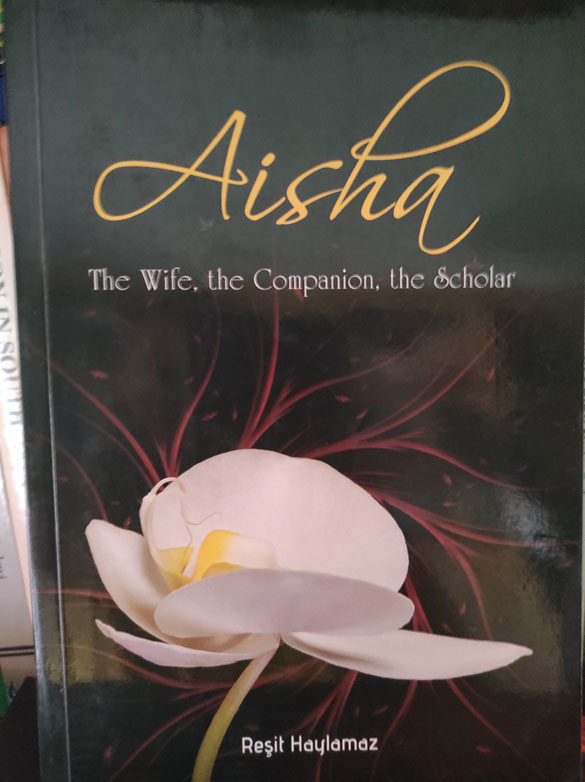Hazrat Aisha's contribution in the spread, propagation and legacy of Islam
 Women in Islam have played an important public, intellectual and leadership role.
Women in Islam have played an important public, intellectual and leadership role.
By Mushtaq Ul Haq Ahmad Sikander, New Age Islam
15
July 2021
Highlights
*The Quranic discourse is mostly Right based for women and Duty based for men.
*
The book describes Hazrat Aisha's political stance and involvement during the
period of four caliphs, and later on during the times of Mauwiyah, whom she
criticized vehemently for his wrong policies.
Aisha: The Wife, the Companion, the Scholar by Resit Haylamaz, USA, Tughra Books, 2012, Pp 224. ISBN 9781597842662
Srinagar, Kashmir
--------

Islam came as a harbinger of change; it
revolutionized the way of life and made a deep impact on the world. Quran described
the fundamentals of women rights. The Quranic discourse is mostly Right based
for women and Duty based for men. In the early years of propagation of Islam by
Prophet Muhammad (pbuh) women played a decisive role. The first martyr of Islam
was a woman, Summaya (may Allah be pleased with her). But it is also a sad
reality that not much has been written about the contribution of these women to
Islam. Most of their contribution and legacy remains unsung in oblivion. There
is a dire need of scholars and writers, who can analyze, deliberate and bring
forth the contribution of the women in the spread, propagation and legacy of
Islam.
The present book under review tries to fill this void. The book AAisha: The Wife, The Companion, The Scholar as the name suggests analyzes and discusses the role of Aisha (may Allah be pleased with her) as the wife of Prophet Muhammad (pbuh). Being the foremost among the companions of the Prophet (pbuh), Aisha after his death assumed the role of a scholar and transmitter of Hadith (saying and practices of Prophet Muhammad). The author, Resit Haylamaz, a Turkish scholar has brought to the fore the legacy of Aisha, dealing with the major and even minutest details of her life, that was dedicated to the mission and cause of Islam.
Resit describes her life after she is
engaged to Prophet Muhammad (pbuh). The contrast between her austere life and
that of the other women is brought to the fore. The love that existed between
her and Prophet Muhammad (pbuh) that made them a unique couple and that still
is an example for married couples to follow is described vividly with the help
of various incidents. These incidents help us understand, how loving, caring
and respecting spouses they were towards each other. Not only her relation as a
wife is described but the intra wives relations that existed among Aisha and
other wives of Prophet Muhammad (pbuh) have been nicely depicted too. Her role
while taking part in various military campaigns against enemies of Islam has
been described too.
The personal piety of Aisha too can be
witnessed by her observance of prayers and fasting. For her the example of
Prophet Muhammad (pbuh) was the code of conduct for life that she tried to
adhere strictly. She was always ready to forgive her enemies and never believed
in revenge. She never stooped low to bear any grudges against those who wronged
her. The best example of this conduct can be witnessed when the hypocrites in
Medina stirred a tirade of slander against the character of Aisha. When the
truth about her untarnished and pristine character was upheld by Allah through
revelation, she forgave all those who had been a part of the smear campaign
against her.
The role of Aisha in the aftermath of
death of Prophet Muhammad (pbuh) became more important because only a few
people knew minute details about the personal and private life of Prophet
Muhammad (pbuh). Aisha being one of his favorite wives became a primary source
of information regarding the life, behavior, conduct and opinions of Prophet
Muhammad (pbuh). It is her intimacy with Prophet Muhammad (pbuh) that the other
Muslims and even companions of the Prophet used to visit her and enquire from
her about various issues. She thus assumed the status of having encyclopedic
knowledge related to Islam and other issues. She thus contributed positively to
the fields of exegesis, Hadith literature, jurisprudence, theology. Her
contribution to the Hadith literature is immense, but that doesn’t
underestimate her contribution to other related branches of knowledge. She was
wise and quite eloquent when it came to literature, poetry and oratory. She had
certain expertise in medicine too. The book describes her as a teacher too, who
had a permanent lot of students who learnt from her. Regarding trifling and
contending issues her views were always balanced, factual and positive. She
left an indelible impact on the transmission of knowledge among Muslims.
Aisha
(may Allah be pleased with her),
not only played a role of an individual scholar-teacher but also had a public
political role, particularly in the aftermath of the crisis that arose with the
martyrdom of third Caliph of Muslims, Othman (may Allah be pleased with him).
She played a central role in the battle of camel, that happened between her and
Ali (may Allah be pleased with him), who was the fourth caliph of Muslims. The
book describes her political stance and involvement during the period of four
caliphs, and later on during the times of Mauwiyah, whom she criticized
vehemently for his wrong policies.
The book towards the end also carries
two chapters that deal with the relation of Ali with Aisha, and author nicely
describes that they had cordial relations and respect for each other, during
the battle of camel as well as in its aftermath. This brings forth the fact
that tussle or skirmishes even violence among the Companions of the Prophet
Muhammad (pbuh) had a different connotations that can’t be presumed on present
conflicts. Also one of the contending issues related to the life of Aisha is
her age at the time of marriage with Prophet Muhammad (pbuh). The author
through deep analysis has very well described that she was not nine years old
when she was married to Prophet.
Overall the book is a nice addition to
the contribution of the life and legacy of Aisha to Islam. The book is a
compulsory read for all those who want to know more about the contribution of
Aisha, but it isn’t without its flaws. Little has been described about the
death of Aisha. There is a theory that she died as a result of conspiracy
hatched against her. The author is silent about the same! Also on Page 155 the
author gives a misleading title of “The Caliphate of Mauwiya”. None of the
Muslim scholars consider mauwiya as caliph and his rule was monarchy not
Caliphate. But despite all these flaws the book is a nice and welcome read.
---------
M.H.A.Sikander is Writer-Activist based in Srinagar, Kashmir,
---------
URL:
New Age Islam, Islam Online, Islamic Website, African Muslim News, Arab World News, South Asia News, Indian Muslim News, World Muslim News, Women in Islam, Islamic Feminism, Arab Women, Women In Arab, Islamophobia in America, Muslim Women in West, Islam Women and Feminism
